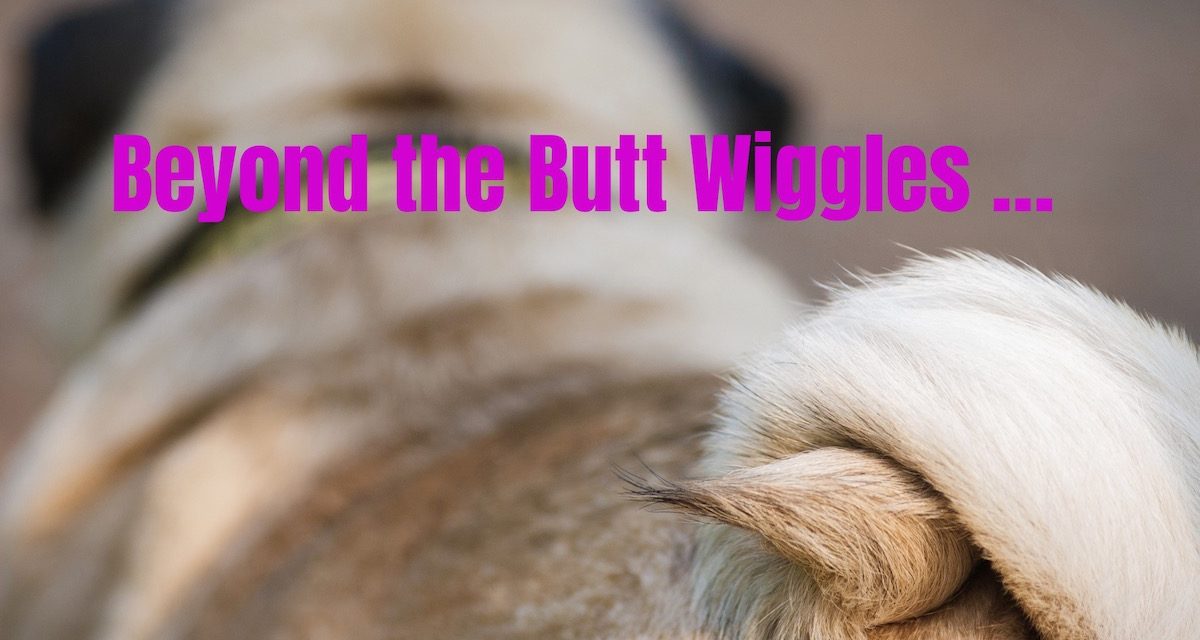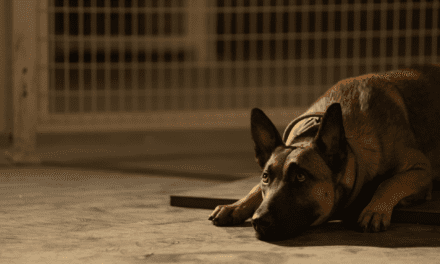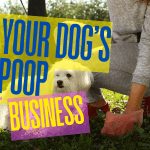By Bianca Kapteyn
For dog owners, the joys of companionship often comes with a side effect – the dreaded doggy fart. When Otis, my beloved Wheaten Terrier was alive, his olfactory assaults could clear a room, leaving us wondering: why are dog farts so stinky? Buckle up, pet parents, because we’re diving deep into the digestive science behind those foul odours.
The Fermentation Fiasco: Where Gas Comes From
At its core, a dog’s flatulence is no different from our own. It all boils down to gas production in the digestive tract. When your canine companion chows down, their food embarks on a journey through the digestive system. Part of this journey involves the large intestine, where a vibrant community of bacteria resides. These microscopic munchers play a crucial role in breaking down leftover nutrients the body cannot absorb on its own. However, this breakdown process isn’t always sunshine and rainbows. During fermentation, the bacterial crew produces various gases as byproducts, including:
Hydrogen: Odourless and mostly harmless, the gas makes up a significant portion of canine flatulence.
Carbon Dioxide: Another odourless gas, it contributes to the inflation sensation in a dog’s gut.
Methane: This inflammable gas, while not particularly smelly on its own, can contribute to a fart’s overall unpleasantness in high volumes.
The Culprits: Sulphur-Containing Gases – Here’s where things get interesting– and smelly.
When gut bacteria break down food rich in sulphur, they release villainous gases like hydrogen sulfide and methanethiol. These are the real stink bombs, responsible for the characteristic rotten egg and cabbage-like aromas that can make you gag.
Dietary Decisions: What Goes In Affects What Comes Out
So, what exactly turns a normal digestive process into a gassy nightmare? Here are some dietary culprits to consider.
Difficult-to-Digest Foods: Dogs lack the enzymes (salivary amylase) needed to break down certain complex carbohydrates found in foods like beans, lentils, and Cruciferous vegetables ( broccoli, cauliflower, cabbage). The undigested carbohydrates become feast for gut bacteria, leading to increased gas production and smellier farts.
Fatty Foods :Fatty meats and dairy products can take longer for dogs to digest, allowing more time for bacterial fermentation and gas production.
Food Intolerance: Just like humans, dogs can have food sensitivities. If your dog is intolerant to an ingredient in their food, it can upset their digestive system and lead to excessive gas and foul-smelling flatulence.
Swallowing Air: Fast eaters or flat-faced breeds like pugs and bulldogs tend to gulp in air while eating, which can contribute to bloating and gas.
Beyond Diet: Other Factors at Play
While diet plays a major role in doggy flatulence, there are other factors to consider:
Age: Puppies with immature digestive system might be more prone to gas until their gut bacteria establish a healthy balance.
Gut Health: Disruptions in the gut microbiome, the delicate balance of bacterial populations in the intestines, can lead to excessive gas and stinkier farts.
Underlying Medical Conditions: Certain health issues like inflammatory bowel disease or intestinal parasites can also contribute to excessive gas and foul-smelling flatulence.
Combating the Canine Clear-out: Strategies for a Fresher Future
If your dog’s flatulence is causing discomfort for them or an affront to your nose sensibility, fret not!
Here are some suggested strategies to combat the stinky.
Diet Matters: Talk to your veterinarian about choosing a highly digestible dog food formulated for sensitive stomachs. Consider, smaller, more frequent meals to prevent them from gulping too much air.
Identify Food Sensitivities: If you suspect a food intolerance, work with your vet to identify the culprit and eliminate it from the diet.
Slow Down Quaff Eaters: Use puzzle feeders or slow-feed bowls that encourage them to take their time while eating, reducing air intake.
Probiotics for the Win: Probiotic supplements can help promote a healthy gut microbiome, potentially reducing gas production.
Remember: While a little tooting is normal, significant changes in your dog’s flatulence, especially if accompanied by other symptoms like vomiting,diarrhea, or lethargy, could indicate an underlying health issue. Always consult with your veterinarian if you’re concerned about your dog’s gassy outbursts.
Understanding the general science behind dog farts not only helps us deal with the odoriferous aspects of canine companionship but helps shed light on their digestive health. By making informed dietary choices and monitoring their well-being, we can help create a win-win situation.
On the Shelve: The Forever Dog Life by Dr. Karen Shaw Becker and Rodney Habib, their latest book offers 120 recipes, longevity tips, and new science for better bowls and healthier homes.











